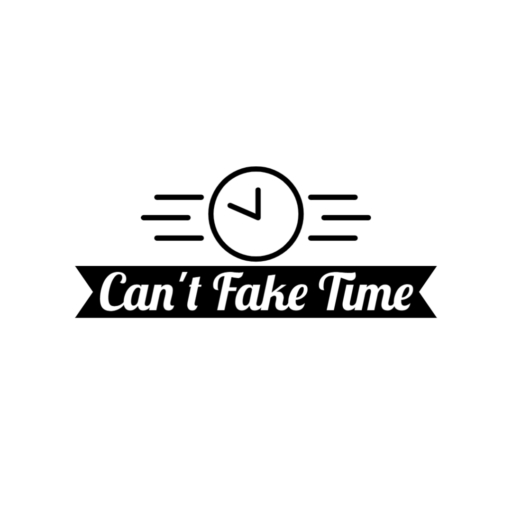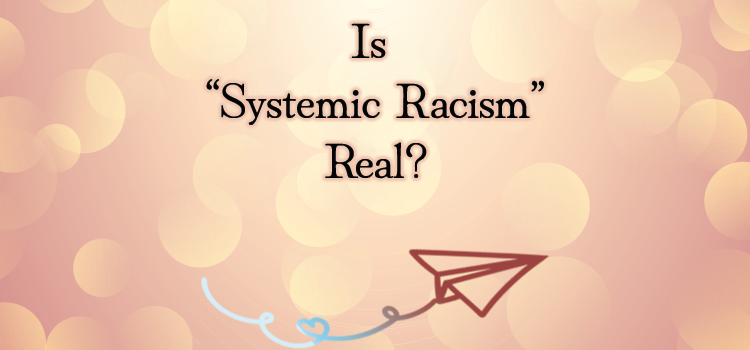“When the architects of our great republic wrote the magnificent words of the Constitution and the Declaration of Independence, they were signing a promissory note to which every American was to fall heir. This note was a promise that all men, yes, black men as well as white men, would be guaranteed to the inalienable rights of life liberty and the pursuit of happiness.
It is obvious today that America has defaulted on this promissory note insofar as her citizens of color are concerned. Instead of honoring this sacred obligation, America has given its colored people a bad check, a check that has come back marked “insufficient funds.” But we refuse to believe that the bank of justice is bankrupt. We refuse to believe that there are insufficient funds in the great vaults of opportunity of this nation. So we have come to cash this check, a check that will give us upon demand the riches of freedom and security of justice.
We have also come to his hallowed spot to remind America of the fierce urgency of Now.”
-Dr. Martin Luther King, Jr., “I Have A Dream Speech”, August 28, 1963
***
With the conviction of Derek Chauvin in the murder of George Floyd, I’ve heard a surge of misunderstanding surrounding “systemic racism.” While I hardly consider Laura Ingram to be a good-faith actor, here she is recently misrepresenting the idea. https://www.foxnews.com/media/ingraham-slams-biden-and-democrats-for-perpetuating-big-lie-that-america-is-systemically-racist
To be clear, this post is intended specifically for white people and considers specifically anti-black racism. While many of these issues bleed over to other marginalized groups, I am much less versed in those intersections and refer you to other amazing creators from those communities for their perspectives.
It’s taken me a long journey, but I think I can break the “systemic racism debate” down now very simply. (I credit this idea to Dr. Ibram X. Kendi, author of How to Be an Antiracist and Stamped from the Beginning: The Definitive History of Racist Ideas.)
By many, many metrics, Black people as a whole are behind. Statistically, Black women are three times more likely to die in childbirth, Black unemployment is among the highest, only four CEOs of Fortune 500 companies are Black, Black income and household wealth is lower, Black poverty is double white poverty, and more.
(This post intends to discuss the general discrepancies between races, not to delve into individuals. Often, the outliers such as Obama, Beyonce, and Oprah, as well as any Black people you happen to know or work for/with personally are cited to derail the discussion of systems. That’s a conversation for another time.)
Now if indeed Black people are doing worse in America, then there are two possible explanations:
-
The “system” – our culture, society, laws, institutions, norms, etc. – applies pressure to Black people in a way that it does not apply to white people. This causes them to struggle disproportionately, which explains the discrepancies we see between races.
OR
-
There is something inherently deficient in Black people, and they themselves (Black people, families, communities, etc.) are the reason we see discrepancies between races.
You might notice that the second answer is pretty much the definition of racism. Because it is.
Systemic racism is often misunderstood as the deliberate, malicious actions toward Black people on a massive scale that is condoned or encouraged by the state. But instead, systemic racism goes more like, “Since indeed Black people are just as moral, hard-working, intelligent, etc. as white people, then what are the pressures being exerted upon them that are causing them to struggle, and how can we change systems to alleviate those pressures?”
This often opens the question regarding “equality of opportunity” versus “equality of outcome,” but to be honest, I don’t see a significant difference. If indeed America has managed to remove barriers to Black progress (abolishing slavery, civil rights act, etc.), then why aren’t Black people doing as well as white people? Is the problem external (ie: systemic racism) or is it the fault of deficient Black people…?
Now if you use the above metric and find out that, upon close examination, you actually believe something that falls into the second category, does that make you a racist? No, not yet. (Unless you’ve attended a KKK march or voluntarily spent your leisure time on Stormfront, then you probably are.) Instead, it means that you hold a racist belief – which you likely had no part in forumating yourself – that you haven’t yet unlearned.
And once you start learning about the origins of our stereotypes, it becomes more and more apparent that these beliefs are no individual person’s fault and we ought not hold anyone at fault for finding themselves with them. It’s not unlike language – we just pick it up when we’re immersed in it, and understanding nuances or taboos takes a certain level of literacy.
Let’s look at an example: the stereotype of Black people as lazy. Despite being supported by mostly inconsequential anecdotes as well as statistics lacking context, we can see this assumption at the top levels of our government. As reported by Newsweek, “In the spring of 2017, the newly elected president met with members of the Congressional Black Caucus. During that meeting, one of the members mentioned to Trump that welfare reform would be detrimental to her constituents— adding, ‘Not all of whom are black,’ according to NBC News. The president was incredulous. ‘Really? Then what are they?'”
Where did this stereotype come from? Soon after the Civil War, slaveholders in the South were not allowed to hold slaves, but they still wanted the free labor of Black people. So, they built a narrative that painted Black people as lazy, and used it as justification to pass a law that required every Black person to be employed (the Black Codes). And if there was any doubt that they were not employed, then they could be arrested for “vagrancy” and pressed back into slavery under the caveat in the 13th Amendment that allows slavery as a punishment for a crime.
(Not to mention, the blatant irony and projection – who were the lazy ones? The slave holders, who did not want to work their own fields, or Black people, who built the infrastructure of the American economy?)
Over time, the stereotype morphed into the idea of “welfare queens,” and one thing led to another, and now maybe you feel inexplicably that this is the reason Black people tend to make less money, have less wealth, and are less likely to be a CEO. This belief was deliberately manufactured to create a system whereby white people could benefit at the expense of Black people, and even if the origin of this belief has been lost over time, it still seriously influences everything from our personal gut feelings to how much the government decided to allot to stimulus, relief, and unemployment benefits during a global pandemic.
In fact, the vocal concern about a lazy underclass who wanted to claim benefits paid by the hard-working taxpayer might never have been explicitly couched in racist terms, but it was a dog whistle: we all lowkey knew what the lazy people in this equation look like, and what the hard-working taxpayer looks like. This isn’t hypothetical – literal, real people, our neighbors, struggled without sufficient benefits because of this stereotype from hundreds of years ago. Disease was spread unnecessarily because our government was overly cautious about “lazy” people getting more than their meager share. And you can connect it eerily all the way back – white people wanting Black people to do the “essential” jobs needed to sustain us and our economy. When you understand the legacy of the black codes, it’s not a big leap. History repeats itself.
So does this mean that only the system is racist, only beliefs, and not people? No, but there are certainly nuances and degrees. There are absolutely neo-nazis, white supremacists, and the Klan, but most people know racism is wrong and don’t want any part of it. But that creates this awkward loop – when someone realizes or is called out for expressing a racist idea, some people immediately react, “You’re calling me a racist? I’m not a racist!” and then proceed to call upon a couple anecdotes about Black people they know who were lazy once, a few statistics that (without context) appear to support their point, and then indulge confirmation bias. Every time they encounter a Black person being what they deem lazy, it further entrenches that racist idea not just into their worldview but into their identity. They’ll surround themselves with other white friends who will assure them that they aren’t racist*. This cycle escalates with each accusation, which eventually does produce real racists who might be very self-assured that is the last thing they are. This is how we end up with “racism without racists” – there’s racism everywhere, but no one seems to know who’s doing it!
*Don’t be that white friend.
Instead, even though it’s hard, the right thing to do when you notice or are confronted with the accusation that you hold a racist belief, approach it with non-judgment. After all, that racist idea wasn’t your creation, you just picked it up, it was here before you were. So you notice it, you respond, “Wow, that’s harmful and untrue. I don’t want any part of that inside me, and I don’t want to perpetuate it out in the world.” And then you do the work. Educate yourself on where that idea came from and why it’s harmful, advocate and vote for policies that will disrupt it on a systemic level, then be vigilant, so when it creeps up on you, you can address it before it becomes action. Even if it does unintentionally become actions, that’s (usually) okay! Acknowledge, apologize, accept accountability if the belief you were saddled with by our ancestors caused harm through your actions if not your intent, and lather rinse repeat. It is embarrassing to mess up, to be called out, but see above: the alternative is to justify, entrench, and ultimately become racist (or, worse, ignore!). And I promise you that Black people have been told they’re “playing the race card,” “are being too sensitive,” and that you “didn’t mean it like that,” nine-thousand-ninety-nine times for every one sincere apology and promise to do better.
And then we take this idea and scale it up to our whole society. The police as a system needs to acknowledge there are racist ideas built into their procedures, they need to make amends, and figure out how to root those out. It might require a wholesale overhaul, as the multiple police killings of other unarmed Black people happened during the trial of Derek Chauvin suggests to many.
But it’s not just police. Our laws, our schools, our legal system, our banks, our realtors, our car salesman, our hiring managers, our doctors, our cashiers, all the way down to the people who market bandages that resemble mostly white skin, all need to have a hard look at ourselves and work to undo the systems of oppression that we did not create, but that we are still responsible for undoing.
It definitely doesn’t mean we hate our country. It means, as Dr. King said, “we refuse to believe that the bank of justice is bankrupt” in America. It means we love her so much that we expect her to live up to her promise to treat everyone as if they were created with certain inalienable rights to life, liberty, and the pursuit of happiness.


Great article, Rachel. Thank you for continuing to educate!